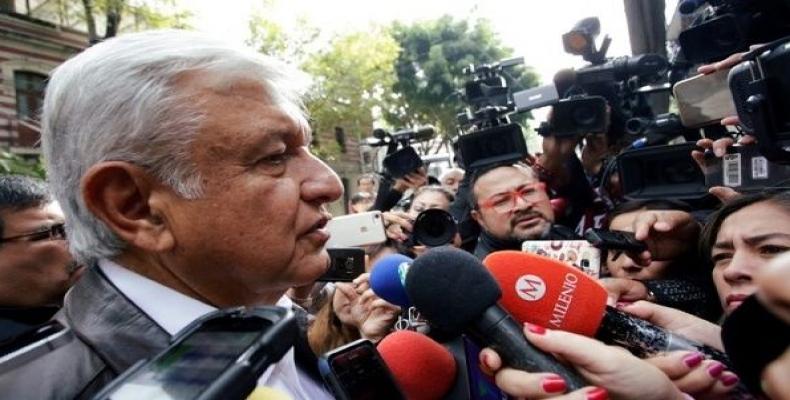Mexico City, July 14 (RHC)-- Mexico's president-elect Andres Manuel Lopez Obrador, better known as AMLO, will begin a series of 'popular consultations' next month to discuss his proposals to fight drug crime through negotiation and amnesties, the program coordinator said.
AMLO, who won the presidency by a landslide and is scheduled to take office on December 1st, has suggested "transitional justice" to stem the violence resulting from 12 years of militarized drug war. The plan could include truth commissions, special courts, reparations for victims and reduced sentences for low-level offenders. The idea, says the president-elect's team, is to move forward with public support.
From August through November, he will hold discussion forums with victims and the general public in some of Mexico's most violent cities, program coordinator Loretta Ortiz told Reuters. If Mexicans embrace the approach, it will go in 2019 to Congress, where Lopez Obrador's allies have a majority.
In the beginning, the war on drugs declared by former Mexican President Felipe Calderon was promoted as the solution to cartels, crime and violence; however, the strategy quickly became counter-productive.
Since December 2006, after Calderon, a member of the National Action Party, announced his so-called war against drug trafficking, more than 80,000 people have been killed or disappeared. Human rights groups and several journalists say the true death toll is over 100,000. Among the victims are civilians, criminals, police, officials and soldiers.
Mexican president-elect will launch public Peace Forums

Related Articles
Commentaries
MAKE A COMMENT
All fields requiredMore Views
- U.S. lawmakers propose withdrawing from United Nations, saying it no longer serves Washington's interests
- Brazil announces dates for BRICS summit
- Indigenous leader and political prisoner Leonard Peltier released after nearly 50 years in prison
- Cuban president congratulates new head of African Union Commission
- Rubio is from the USA, not Cuba

